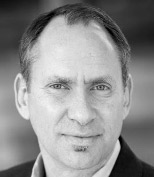|
What is a Multi-Model Database: Two paths of multi-model engineering Date: This event took place live on December 01 2016 Presented by: Damon Feldman Duration: Approximately 60 minutes. Cost: Free Questions? Please send email to Description:Before we can answer "what" a multi-model database is – we need to look at the "why." Traditional databases provide a fixed, static representation of data. However, as soon as you need to accommodate changes to data or downstream requirements, the fixed relational schema becomes an impediment. That gave rise to the NoSQL database — which offered a different database for each data model. While you could use polyglot persistence to bundle different data models together to handle all data types, that introduces more complexity. Plus — document databases, graph databases and key-value stores all have their own niche — so how do you choose between them? A new solution is evolving — the multi-model database. What constitutes multi-model, and when is it useful? In this webcast we will examine the two paths of multi-model database engineering: a single platform that allows many models on one core, versus complex integrations where many systems are pre-packaged. You will learn:
About Damon Feldman, Ph.D., Solutions Director – MarkLogicDamon Feldman is a passionate "Mark-Logician," having been with the company for over 7 years as it has evolved into the company it is today. He has worked on or led some of the largest MarkLogic projects in terms of both volume of data and complexity of implementation, for customers ranging from the US Intelligence Community to HealthCare.gov to private insurance companies. Prior to joining MarkLogic, Damon held positions spanning product development for multiple startups, founding of one startup, consulting for a semantic technology company, and leading the architecture for the IMSMA humanitarian landmine remediation and tracking system. Damon holds a Bachelor's Degree in Mathematics from the University of Chicago and a Ph.D. in Computer Science from Tulane University. |
|
|
|


